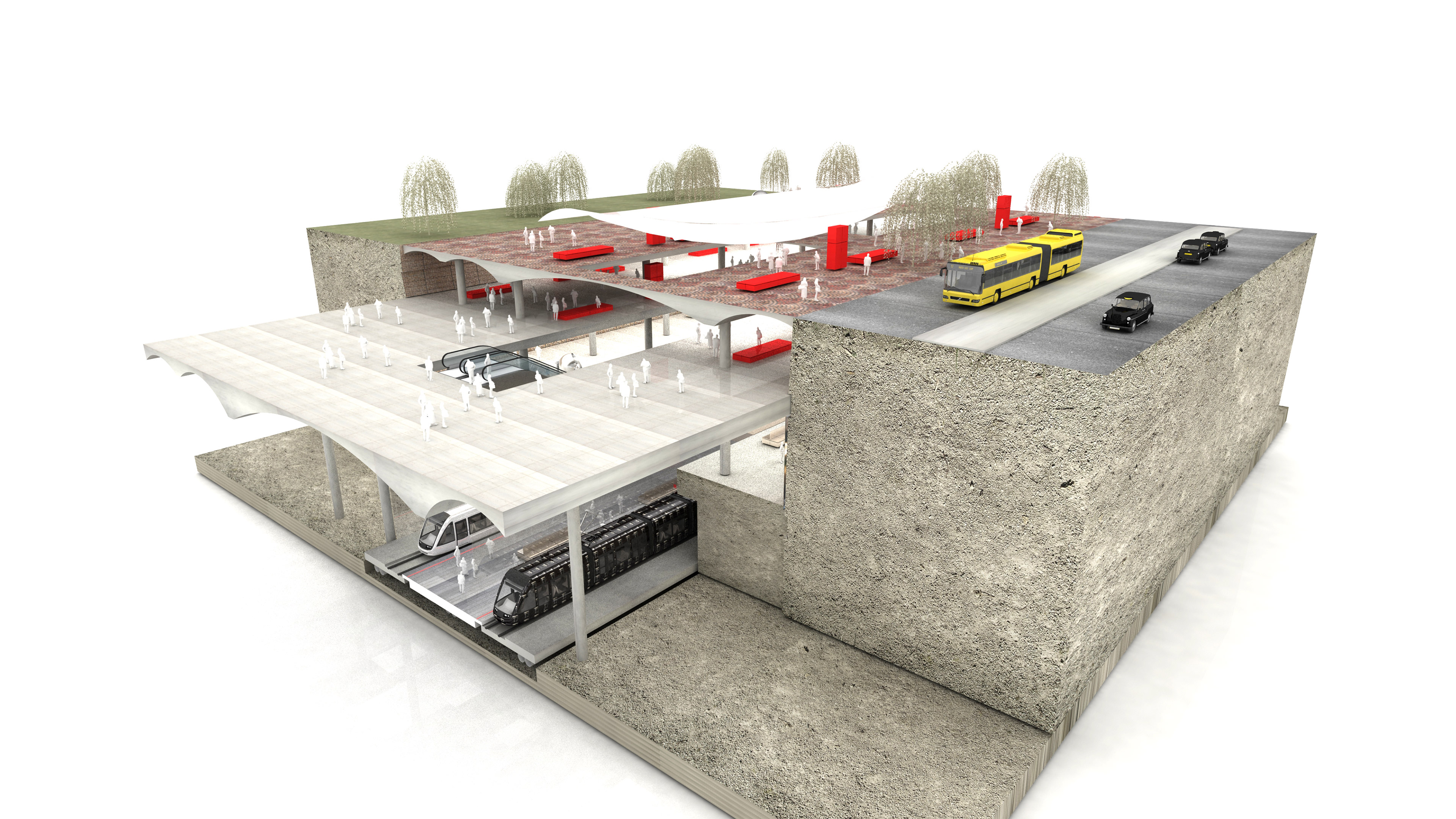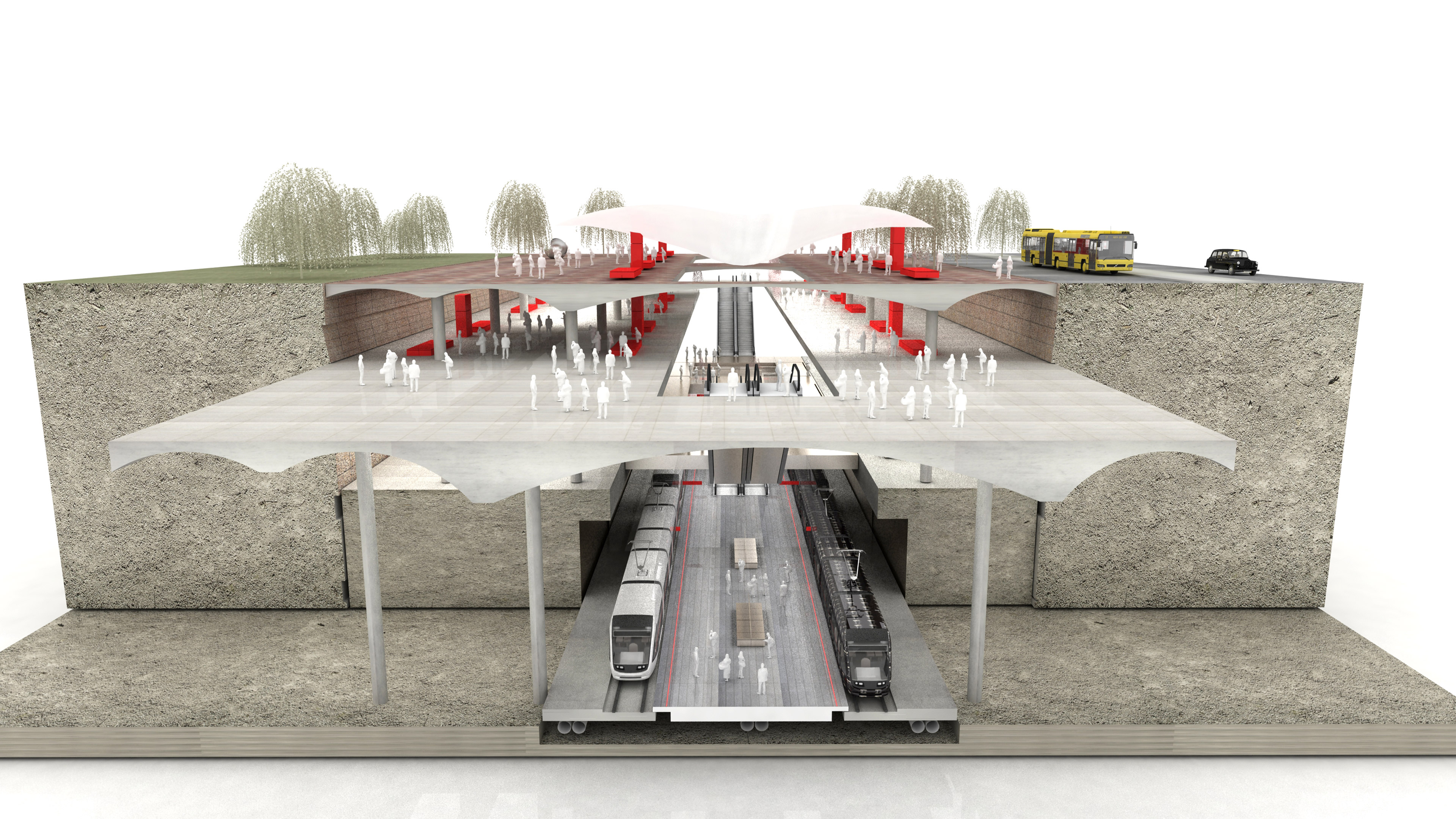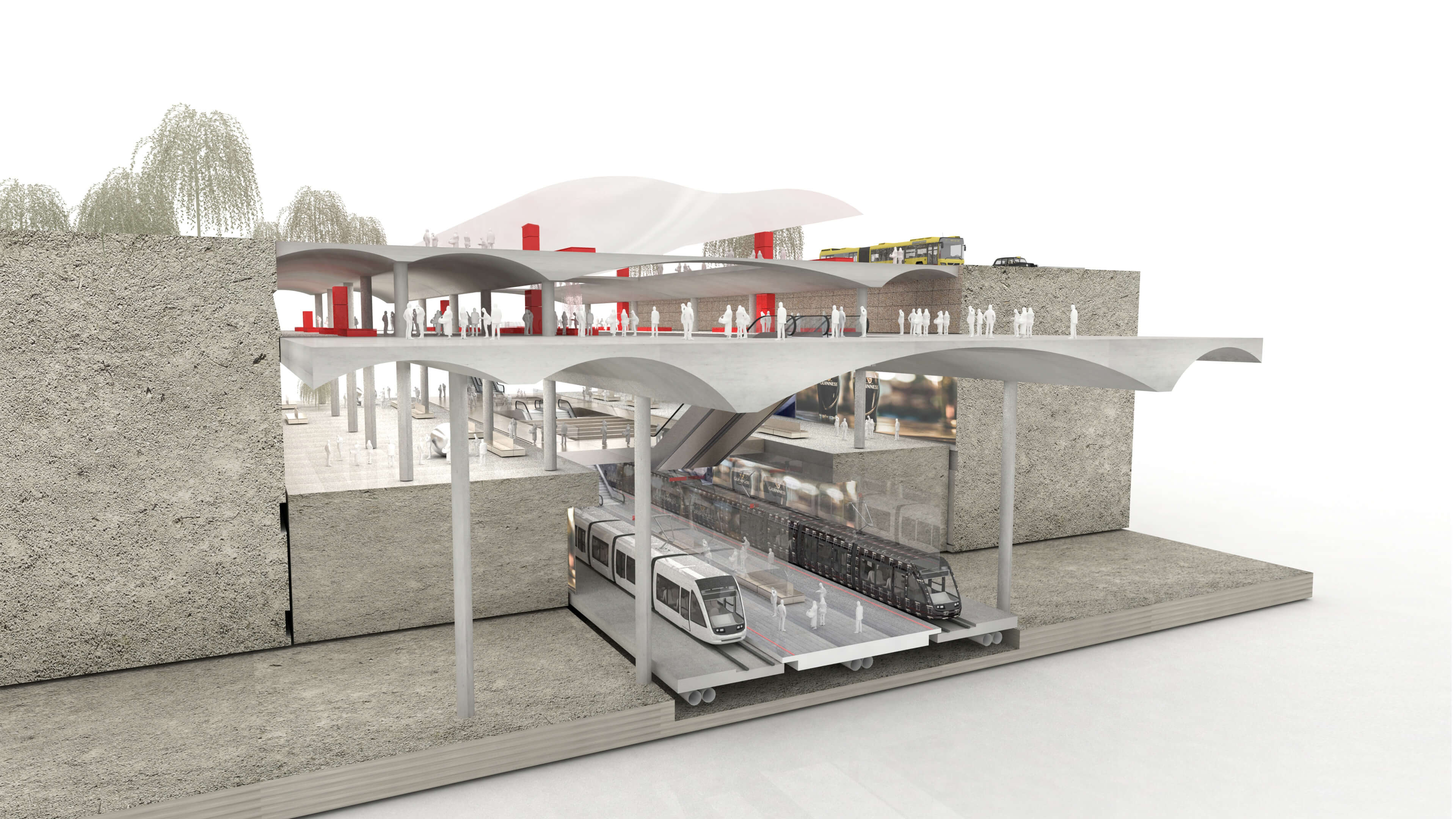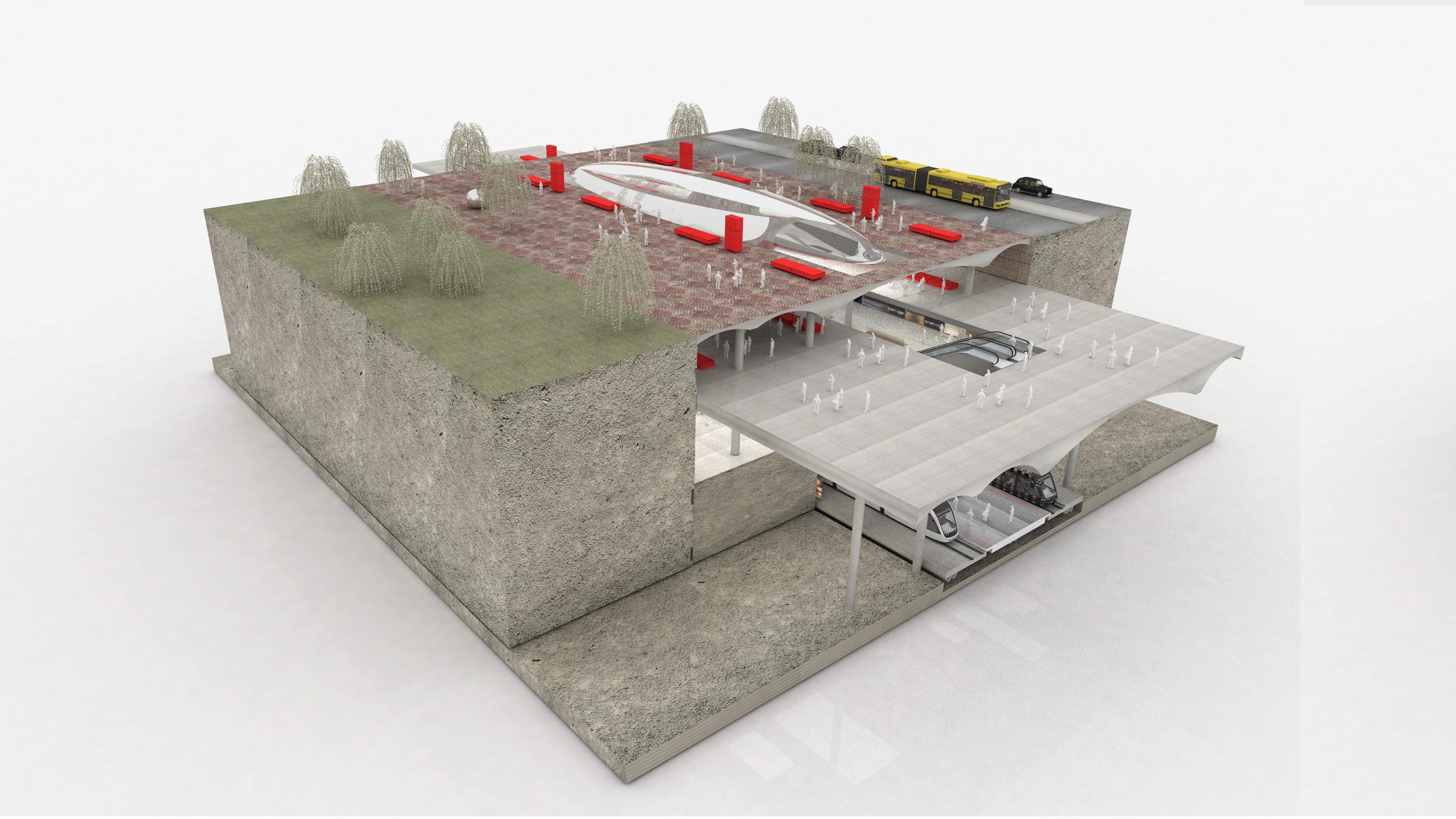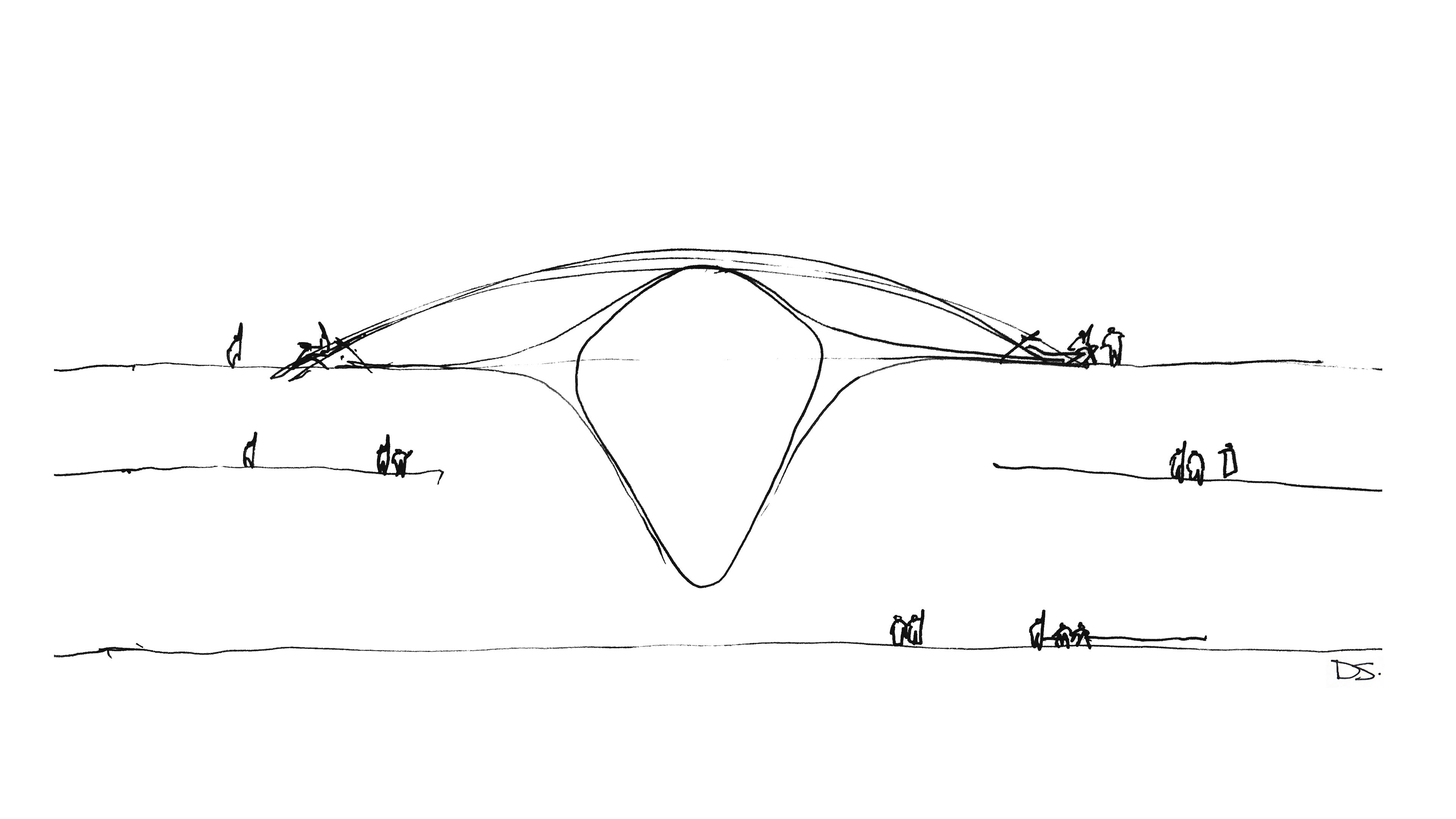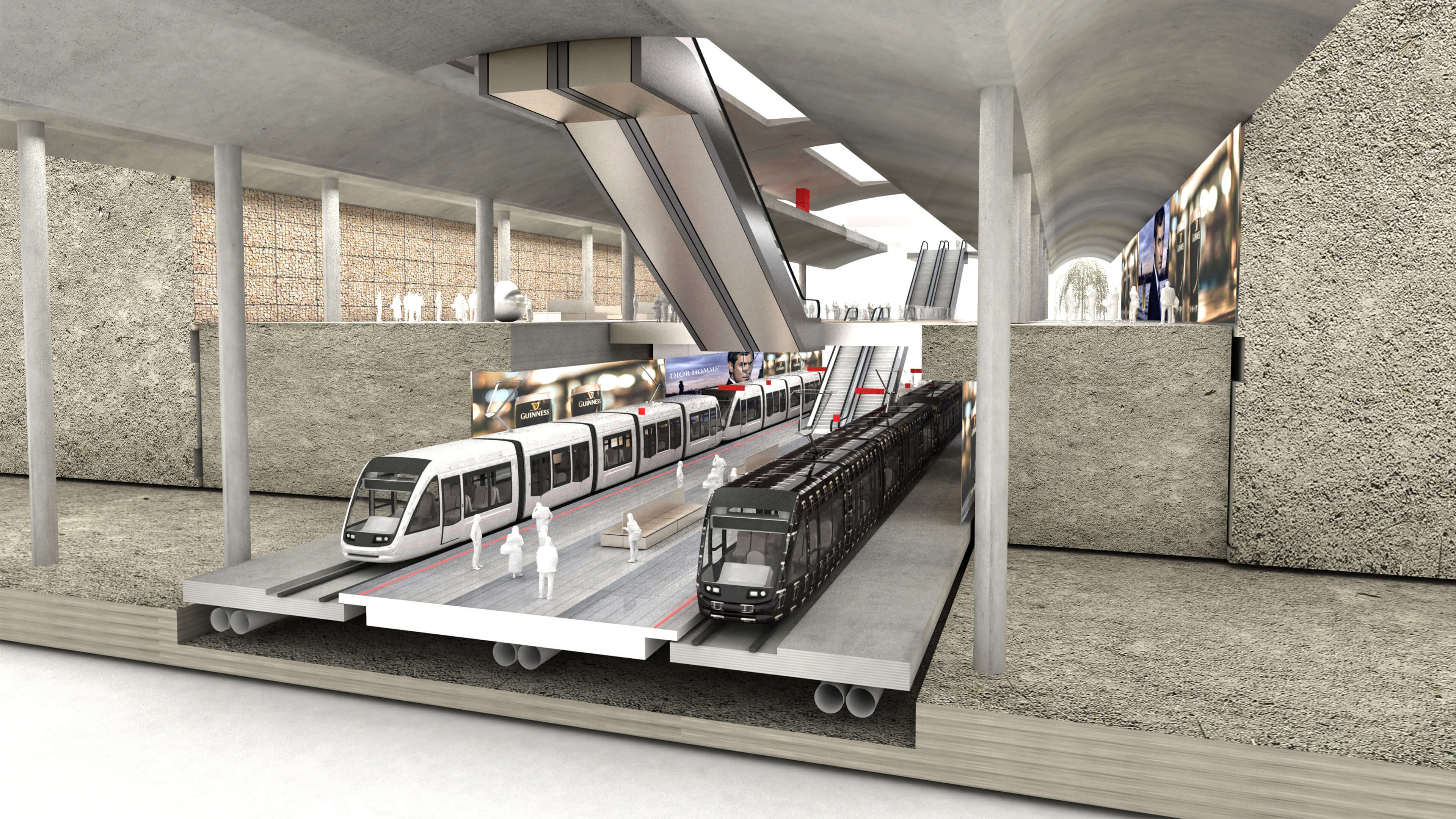
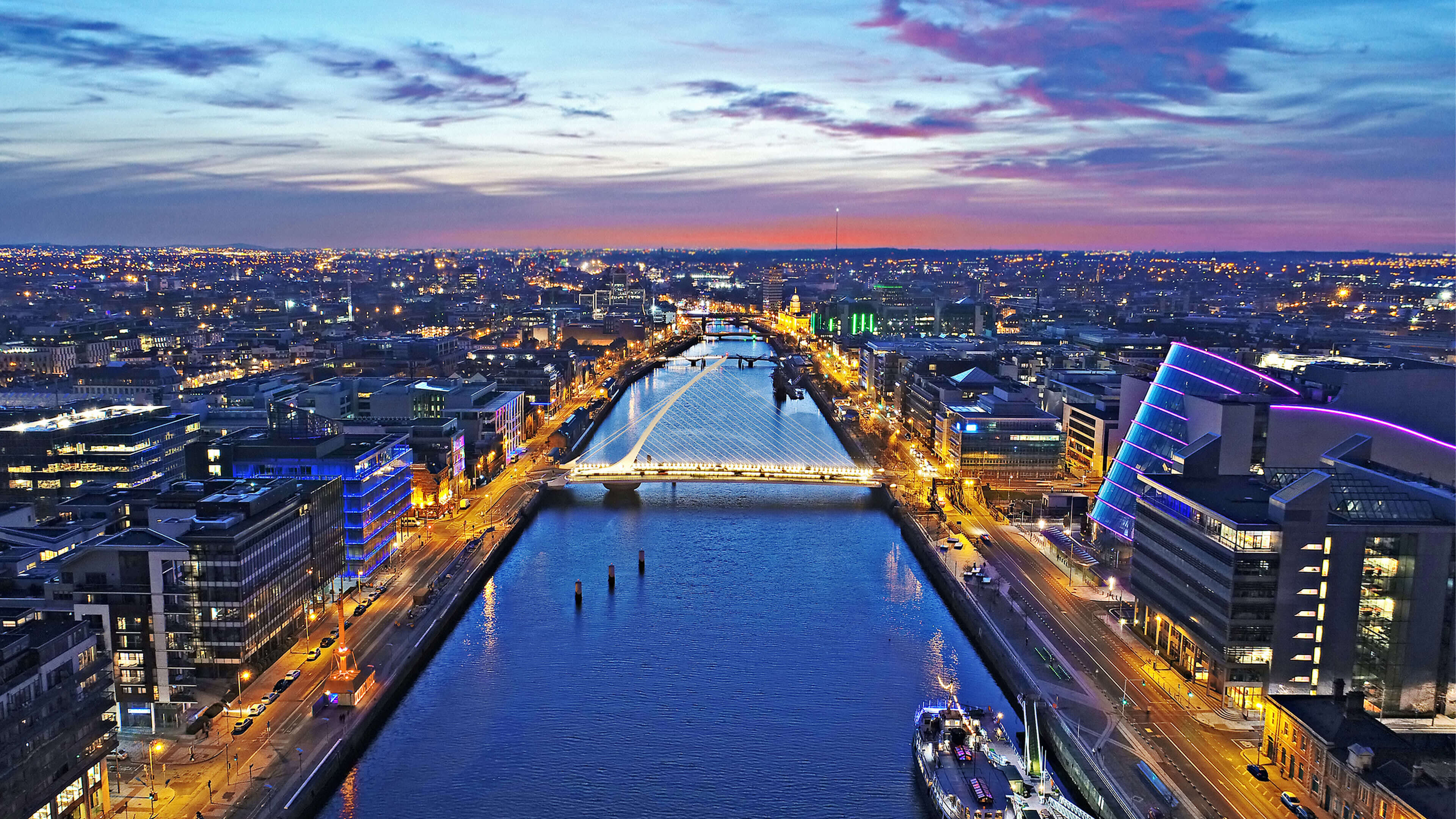
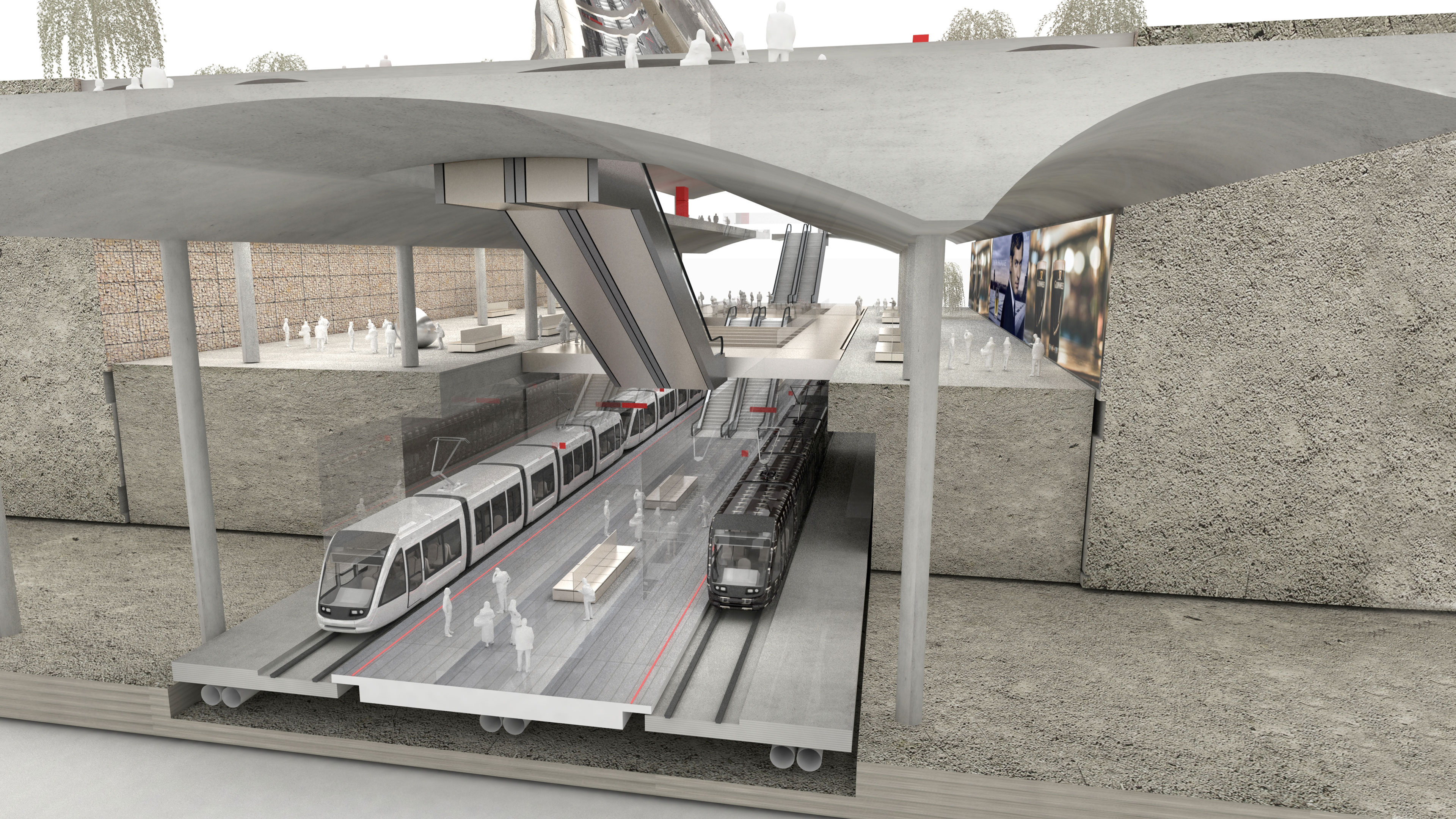
Metro Link is planned as a high-frequency system linking the town of Swords, north of Dublin, to Charlemont, in the city. The line would serve Dublin Airport and connect with existing transportation routes. MetroLink would connect towns north of Dublin into the city center.
After decades of debate and delay, Dublin is on course to construct its first metro line. The mostly-underground route would join 16 stations across 19.4 kilometers (13 miles) between the Irish capital’s center and northernmost suburbs. MetroLink, as it is to be called, will be capable of transporting up to 20,000 passengers an hour at capacity. With a stop at Dublin Airport, it will also free the city of a dubious accolade — being one of the only major western European cities without any rail or metro link to its air terminal.
With a business case approved by the Irish government this month and completion targeted for early in the next decade, MetroLink could do much to lower Dublin’s high dependency on cars. As of 2020, 59% of all journeys within the city were by private car, according to Deloitte’s City Mobility Index, while just 15% were by bus, light rail or train.
The statistics for commuters going in and out of the city are better — in 2019 more than half of those traveling into the inner city during morning peak hours used public transit, with a further 18% walking or cycling — but there are multiple gaps and bottlenecks in the existing suburban rail services. Dublin’s largely segregated two-line light rail network, the Luas, has scant coverage in the city’s north, while accidents or roadwork can leave buses from the airport operating at a crawl. MetroLink could plug these gaps and provide Dublin with a more joined-up hop-on, hop-off public transit network less vulnerable to road congestion.
2009
Dublin City Council
65, 000 m²
Bryan Crossland, Juan Martínez, Maria Pérez, Daniel Statham
Grimshaw
Arup
Billings Jackson Design


